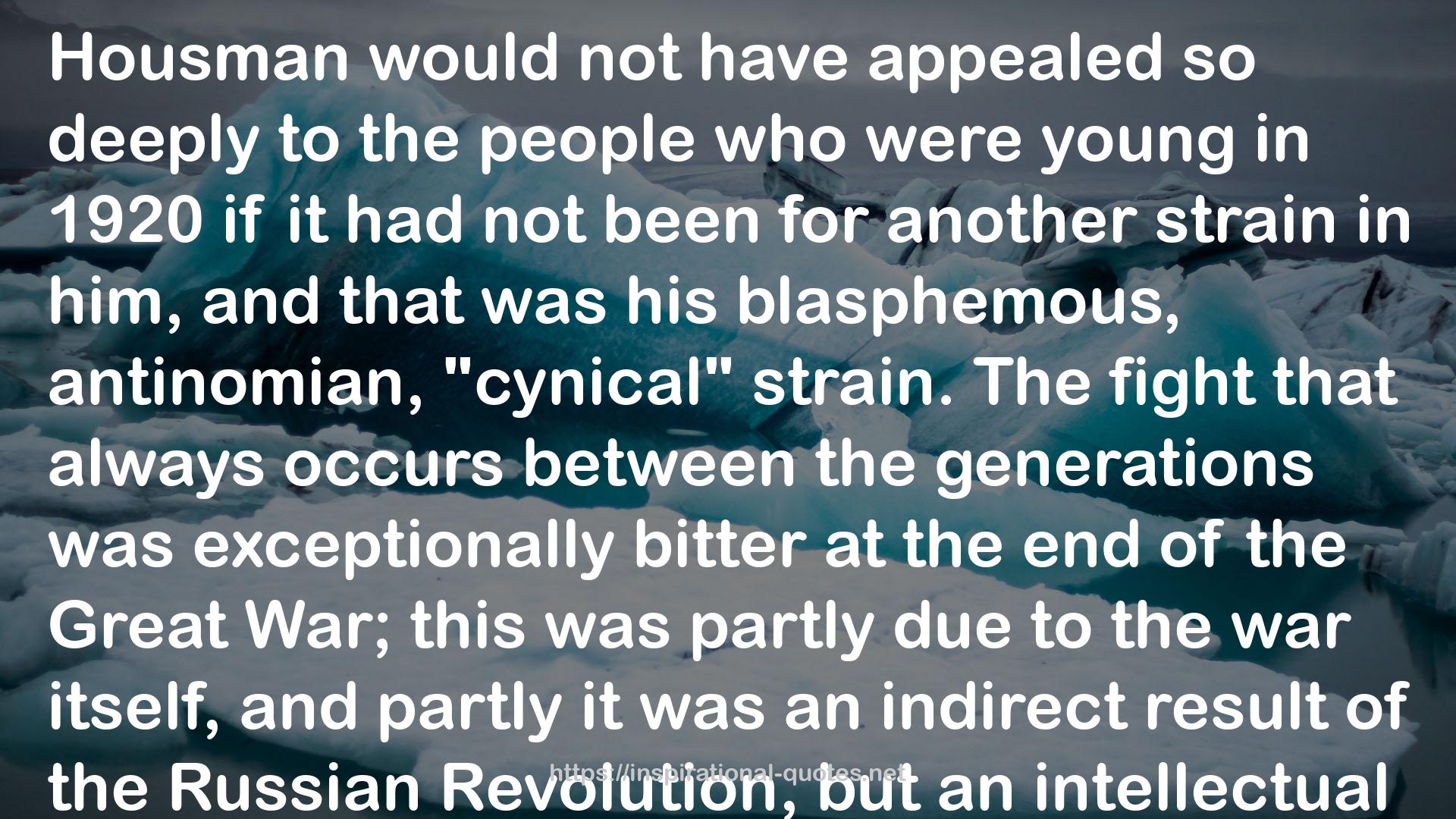" Housman would not have appealed so deeply to the people who were young in 1920 if it had not been for another strain in him, and that was his blasphemous, antinomian, "cynical" strain. The fight that always occurs between the generations was exceptionally bitter at the end of the Great War; this was partly due to the war itself, and partly it was an indirect result of the Russian Revolution, but an intellectual struggle was in any case due at about that date. Owing probably to the ease and security of life in England, which even the war hardly disturbed, many people whose ideas were formed in the 'eighties or earlier had carried them quite unmodified into the nineteen-twenties. Meanwhile, so far as the younger generation was concerned, the official beliefs were dissolving like sand-castles. The slump in religious belief, for instance, was spectacular. For several years the old—young antagonism took on a quality of real hatred. What was left of the war generation had crept out of the massacre to find their elders still bellowing the slogans of 1914, and a slightly younger generation of boys were writhing under dirty-minded celibate schoolmasters. It was to these that Housman appealed, with his implied sexual revolt and his personal grievance against God. He was patriotic, it was true, but in a harmless old-fashioned way, to the tune of red coats and "God save the Queen" rather than steel helmets and "Hang the Kaiser." And he was satisfyingly anti-Christian—he stood for a kind of bitter, defiant paganism, a conviction that life is short and the gods are against you, which exactly fitted the prevailing mood of the young; and all in charming fragile verse that was composed almost entirely of words of one syllable. "
― George Orwell , All Art is Propaganda: Critical Essays
